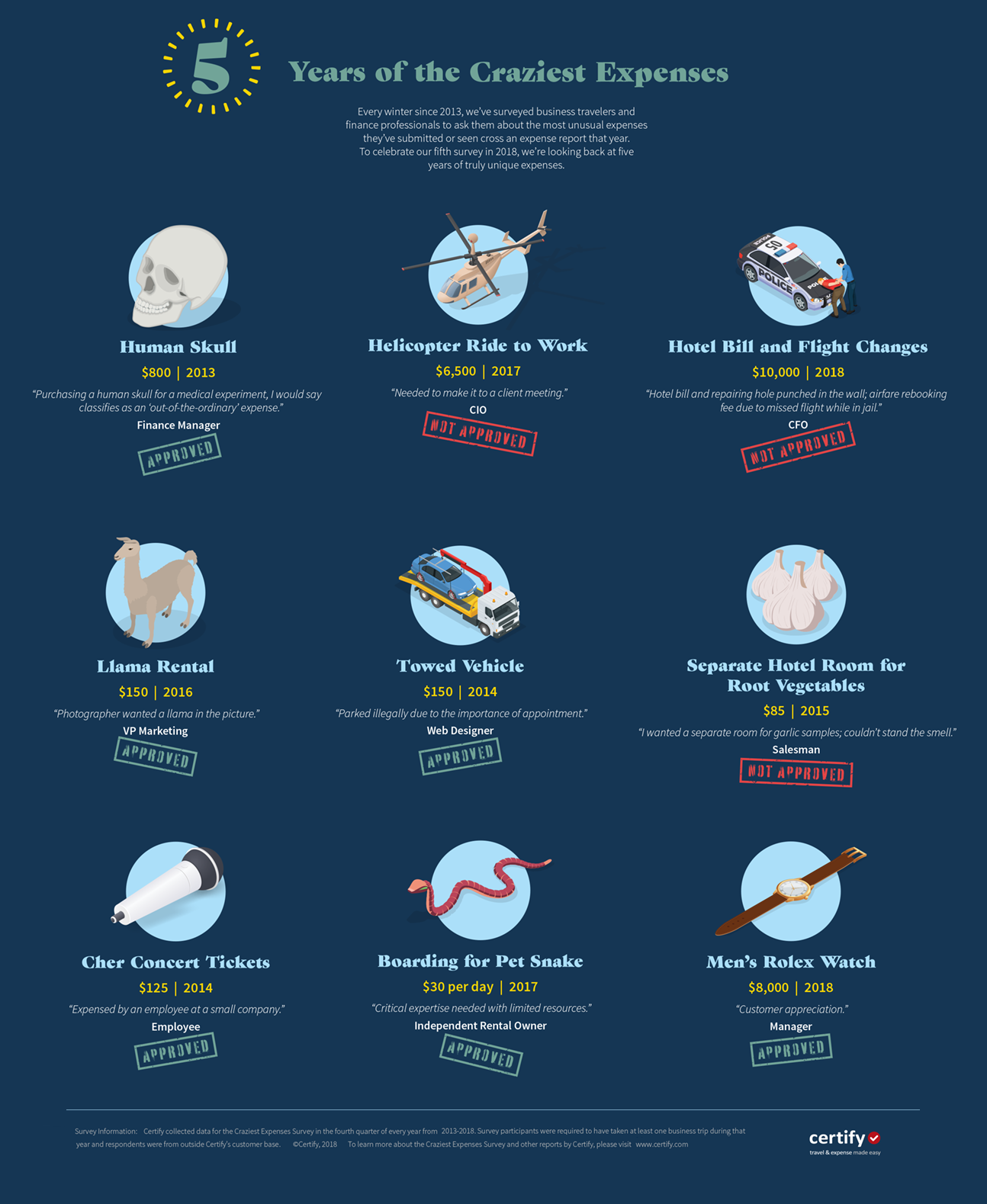Weird Business Expenses Include Strip Clubs, Hang Gliding, Jewelry for Mistresses
Sometimes, workers can justify questionable or eyebrow-raising expenses

Buying thousands of dollars' worth of Starbucks gift cards and claiming it was for "coffee with a contact."
Taking clients to a strip club, then submitting the expense as a steakhouse business dinner.
Boarding a pet snake while on business travel.
Those are some of the unusual "work" expenses unearthed by employers and auditors. Sometimes employees can successfully explain why the expenses are necessary, and they're reimbursed.
Sometimes they can't, and they're not.
"What you find in the business world is there are many kinds of worlds," said Tim Sackett, president of HRU Technical Resources, an information technology and engineering staffing firm in Lansing, Mich. "The world you work in might find that a $400 bottle of wine would never be needed to entice someone to work with you, whereas for someone else, that might be a nightly occurrence. I've done business with hot dogs and beer that cost ten bucks, and I've done it with shots of tequila that cost $100 per shot. What you find outrageous is someone else's normal business dinner."
AppZen is a San Jose, Calif.-based startup that uses AI algorithms to uncover fraudulent or questionable expenses. AppZen analyzed more than 3 million expense reports, and in a study released in January, it reported that:
- An employee tried to expense a pricey piece of Tiffany & Co. jewelry for a woman who was not his wife.
- One worker tried to be reimbursed for gambling losses.
- A third dropped a small fortune at a strip club, then submitted the expense as a steakhouse business dinner.
Every year since 2013, Certify, a company that tracks business expenses, has asked business travelers and finance professionals to share the weirdest expenses they've submitted or reviewed. This year, Certify published the highlights of those five years. Some were approved; some weren't.
The Losses Add Up
The Association of Certified Fraud Examiners reports that expense reimbursement makes up 14.5 percent of business fraud.
Artificial intelligence algorithms can swiftly uncover fraudulent or questionable claims that may be hard for human auditors to detect.
AppZen claims it has saved its clients $40 million in fraudulent expenses. Atlanta-based Oversight Systems has technology that can scrutinize millions of transactions in a relatively short time.
Using such algorithms, companies have discovered workers who:
- Bought $3,000 worth of Starbucks gift cards and claimed it as "coffee with a contact."
- Submitted a $900 bill for a work farewell party without attaching any receipts—just a photo of the party.
- Charged yoga classes to a company credit card and called it "client entertainment."
[SHRM members-only toolkit: Introduction to the Human Resources Discipline of Ethics and Corporate Social Responsibility and Sustainability]
Justifications
Sometimes, workers can justify questionable or eyebrow-raising expenses.
"Many years ago, I took clients to strip clubs and it turned into millions of dollars of revenue for the company I worked for," Sackett said. "I had a female boss that I turned those expense reports in to get paid, and she gladly signed them and wanted to know who else I was 'wining and dining' next. I'm not sure you can characterize it as a legitimate means of entertaining clients today, but if your competition is doing it, you have some decisions to make if you want that business."
Certify discovered that a company reimbursed a worker $2,000 for a hang glider ride, perhaps as a morale booster, because the employee's explanation was "to avoid a divorce." Another company approved boarding for a pet snake at $30 a day. And a third handed over $800 to a worker who bought a human skull while traveling for a medical experiment.
Why do employees try to get away with outrageous expenses?
It could be they feel they're not paid enough. Or, they could feel that their executive rank, or their value to the company, entitles them to spend extravagantly.
"Entitlement gets more people fired than any other single thing in the world," Sackett said. "'I'm entitled to this because I made up my mind that I should get this, and the company owes it to me.' 'I spilled coffee on my shirt while driving for a business meeting, and I'm going to stop and buy a new shirt, because I'm on my way to an important meeting and can't show up with a stain.' 'I've got to go to Italy for work so why shouldn't I be able to take my wife and have nice dinners? Work is keeping me away from my family.'"
Was this resource helpful?




